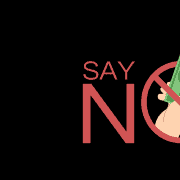|
Getting your Trinity Audio player ready...
|
Transparency International’s (TI) new report, titled Implementing and Enforcing the African Union Convention on Preventing and Combating Corruption: a Comparative Review, examines 10 African states in terms of the state of implementation of the AUCPCC. They are Côte d’Ivoire, the Democratic Republic of Congo (DRC), Ethiopia, Ghana, Morocco, Mozambique, Nigeria, Rwanda, South Africa and Tunisia.
The report assesses each country on four key AUCPCC areas: money laundering, illicit enrichment, political party funding, and civil society and media. These areas, says TI, are crucial to developing strong anti-corruption frameworks and preventing the loss of vast sums to corruption.
The aim is to identify key challenges that need to be addressed to improve both the legal framework and enforcement of selected anti-corruption provisions contained in the AUCPCC. It will thus also be useful to stakeholders from other African countries who are party to the convention and who are interested in better understanding some of the challenges faced by their peers in combatting corruption.
Since the adoption in 2003 of the AUCPCC, 44 of the 55 AU member states have ratified the convention. But, says TI, there is little information on how well the convention is implemented in practice.
Meanwhile, corruption in African countries continues to hinder economic, political and social development. “It is a major barrier to economic growth, good governance and basic freedoms, such as freedom of speech and the right of citizens to hold governments to account”, the report notes.
South Africa
In terms of money laundering, South Africa’s record of enforcement is lacking in detail. According to the report, the Financial Intelligence Centre (FIC) referred more than 800 cases to the South African Police Service from 2009 to 2013, but it is unclear how many of these referrals were investigated and resulted in convictions. In 2017/2018, the FIC referred another 149 cases of money laundering to law enforcement and received 164 investigation requests. According to older data from the International Monetary Fund, there were eight convictions for money laundering in 2011, 13 in 2012, and 11 in 2013. Most of those, says the report, were for self-laundering of proceeds of domestic predicate crimes rather than charges for third party laundering.
With regard to illicit enrichment, this has yet to be fully criminalised in South Africa, although the government considers that the current legal framework is sufficient to comply with UNCAC Article 20 on illicit enrichment. Under the law, the national director of public prosecutions (NDPP) can apply to a judge to investigate a person if evidence is presented to the judge that “a person maintains a standard of living above that which is commensurate with his or her present or past known sources of income or assets, or is in control or possession of pecuniary resources or property disproportionate to his or her present or past known sources of income or assets, through the commission of corrupt activities or the proceeds of unlawful activities.” The NDPP can summon the suspected person to produce evidence on the asset or property, but such evidence cannot be used in a criminal proceeding.
South Africa passed the Political Party Funding Act in 2018. This states that any contribution to a political party which meets the definition of cash donations and donations in kind (including loans on terms other than commercial terms, money paid, or expenses incurred on behalf of political parties and the provision of assets, and facilities or professional services other than on commercial terms), must be declared both to the Independent Electoral Commission and the public if the value of all donations from a single donor cumulatively exceeds R100 000 over a 12-month period. Donors must also report to the commission.
Because the law is so recent, says the report, there is no data on enforcement. This is more likely owing to the fact that the law is not yet in operation. It will commence only on 1 April 2021.
When it comes to media and civil society, South Africa’s Constitution guarantees freedom of expression of individuals, the media, and academic thought. The country’s media is “vibrant and adversarial”, and engages robustly with society and powerful government and private stakeholders alike. It plays an active role in exposing political and private sector corruption, in particular through specialist investigative journalist groups, such as amaBhungane and Scorpio.
However, journalists are often attacked – verbally and physically – for critical reporting, with government and opposition parties exerting pressure on both state-run and independent outlets. There is no formalised engagement between government and civil society and media regarding the monitoring and implementation of the AUCPCC, although civil society is engaged by government in the broader context of combating corruption.
For more in-depth analysis, download the report.
General recommendations
- Ratification: All AU member states that have not yet done so, should urgently complete the full ratification process of the AUCPCC, including DRC and Morocco.
- Monitoring: Countries which have ratified the convention should finalise and submit progress reports to the AUABC as soon as possible. Countries should also consider developing formal multi-stakeholder engagement structures at the national level to support implementation and monitoring of the convention.
- Transparency: The AU should make all progress reports publicly available so that citizens can monitor their governments´ internationally agreed commitments on anti-corruption. All states parties to the AUCPCC should publish, on at least an annual basis, easily accessible disaggregated data on the enforcement of money laundering and illicit enrichment offences and data on political party finances, including the amounts of public and private donations received and spent.
- Capacity and independence: All countries should invest in specialist technical skills and coordination capacity among investigators, prosecutors and other specialised professions to pursue complex corruption cases while ensuring full independence of prosecutorial and judicial bodies so that offences can be prosecuted impartially.








